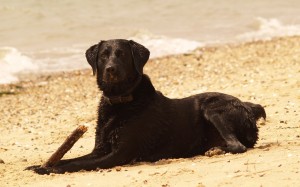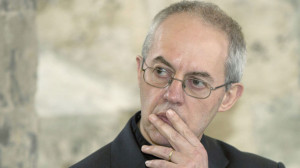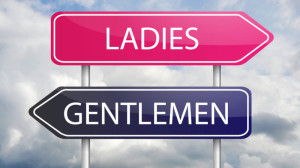We have witnessed scenes of appalling devastation in recent weeks as a sequence of hurricanes has caused havoc in the Caribbean and Gulf of Mexico. First Hurricane Harvey dumped vast quantities of rainwater on Houston; then Irma flattened many islands; now, at the time of writing, Maria has blasted Dominica and Puerto Rico.
In the face of such damage and suffering there are many arguing that there is a link with global warming. The Guardian, for example, carried a column by Bill McKibben comparing these hurricanes to the time when a long-time smoker starts coughing up blood – it is not that there will be bad consequences of our choices in the future, rather, the bad consequences are here, now.
The underlying point is that our human activity has caused this bad weather. There is one straightforward sense in which this is true, which is that if the climate is getting warmer (which it is) then there will, over time, be more energy available to produce these hurricanes. Yet this argument, especially when compared to the link between smoking and lung cancer, runs together arguments that should remain separate.
The first way in which it misleads is that it is not known how far the amount of warming that the climate is experiencing is being driven by natural variability rather than human activity, something which is known as ‘climate sensitivity’. There are different estimates for this, which are being adjusted regularly as the science evolves. At present, the best estimate for the human element – that is, what might be attributed to a doubling of the amount of CO2 in the atmosphere – is around 1.5°C. (Source) It should be noted that this is much less than is claimed by what might be called the ‘alarmists’, and is difficult to pick out from the natural variability of the climate.
The second way in which this misleads is that it makes the science of hurricanes rather more simple than it actually is. The heat of the water is not the only factor that can lead to more intense hurricanes. This year it would appear that a significant factor is the very low amount of ‘wind-shear’ (cross winds) that would normally work to lessen hurricanes but this year has had the opposite effect. There is no clear link between wind-shear and global warming.
In simple terms, when someone like McKibben makes the comparison with cancer caused by smoking he is distorting the truth. Sadly, McKibben is not the only one. Whenever in recent weeks I have read an article about the hurricanes that claims some attribution to global warming caused by human industries I think about all the times that green writers complain about people, noticing snow outside, and saying ‘so much for global warming’. The plural of anecdote is not data, they say, and this is true. Just because it is snowing in England does not, of itself, invalidate a broader climate shift.
The same is true for hurricanes. Just because we have had a bad hurricane – or even a bad hurricane season – this does not, of itself, signify a climate shift. There would need to be a sustained pattern of change before we can confidently say that there is a phenomenon that needs explanation, let alone agree on what the explanation might be. If we look at the last ten years, we can see that there has been no rise in the number of hurricanes in the Caribbean.
My real worry is that, by placing so much emphasis upon global warming in their general advocacy, the green movement has built their house upon sand – and when the rains and the storms come, that house will fall down.
What I mean is that the green movement has really emphasised global warming as the problem that dwarfs all other problems. In doing this they have done two things: hitched their wagon to science, and a science that is not especially robust; and put to one side the much richer insights that previous generations of green thinkers have pursued.
What I have in mind are the wider, more spiritual aspects of green thinking, as best exemplified by someone like EF Schumacher and his ‘Small is Beautiful’. If we reflect upon what it means to be human, and what gives value to our lives, then we will be less concerned to fill our lives with more and more stuff, and more concerned to ensure that our natural environment is kept healthy, so that we in turn might remain healthy too. We would seek patterns of human living that emphasise a respect for all creatures, including other human beings in all their diversity – and be willing to protect our own elements of that diversity too. We would by more fully aware of all the diverse ways in which we are hitting the Limits to Growth – which, in contrast to climate science, has models that have been vindicated over time – and we would seek to tread lightly on the earth, in harmony with the natural rhythms of this wonderful world that we live in. We will, most of all, regain a much healthier understanding of the place of science within a wider and wiser understanding of our lives as a whole.
Such an approach would, I believe, have much more resonance than one that has become absorbed into a technocratic and bureaucratic juggernaut that has left concerns for basic truth behind (for more on why, see the jaw-dropping exposé of the IPCC process written by Donna LaFramboise).
People have a good, stout sense of when someone is talking rubbish to them. Sadly, the green movement has been rumbled on this point, and talk about global warming is now tuned out. The cost for this is immense. The green movement has something essential to contribute to the national conversation, at scales both small and great, yet their over-investment in one particular ecological scare has meant that their voice has been eclipsed, and a generation of activism has been wasted. I would respectfully suggest that, if the green movement wants to make more headway in our present society, they need to stop talking about global warming for a while.













You must be logged in to post a comment.